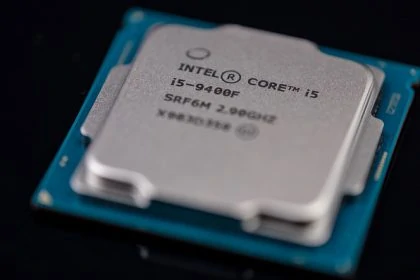What seemed uncertain for a long time happened yesterday: The United Kingdom has ratified the planned European Patent Court (UPC). The United Kingdom is thus taking an important step towards being able to participate in the planned European Unitary Patent despite the Brexite.
The European Unitary Patent and the European Patent Court
 For years there has been an effort within all EU member states to create a common European patent. It would not only simplify the filing and validation of a patent throughout the EU, but above all it would also standardise it. This is also important for the jurisdiction of patent proceedings. Because at the moment it is necessary to take a possible patent infringement to court in the respective country in which the patent infringement occurred. This is complicated for several reasons: national law differs, as do various national professions and rules for patent attorneys. A barrister or solicitor known from British patent law is unknown in Germany, for example.
For years there has been an effort within all EU member states to create a common European patent. It would not only simplify the filing and validation of a patent throughout the EU, but above all it would also standardise it. This is also important for the jurisdiction of patent proceedings. Because at the moment it is necessary to take a possible patent infringement to court in the respective country in which the patent infringement occurred. This is complicated for several reasons: national law differs, as do various national professions and rules for patent attorneys. A barrister or solicitor known from British patent law is unknown in Germany, for example.
Entry into force of the European Unitary Patent within reach?
It is therefore attractive to participate in the European Unitary Patent and EU-wide jurisdiction that will be created by the European Unitary Patent. However, the territorial validity of the European Unity Patent will only apply to those EU Member States which joined the UPC at the time of the entry into force of the European Unitary Patent. With the ratification of the UPC, Britain can now hope to participate in the European Unitary Patent.
The situation in Germany is still uncertain. As we have already reported, the Düsseldorf lawyer Dr. Stjerna filed a constitutional complaint with the Federal Constitutional Court (BVerfG) in 2017 against the ratification of the Convention on a Uniform Patent Court (EPC) as an initially unknown plaintiff. The BVerfG has not yet decided whether to accept the constitutional complaint for a decision. This can be expected in the next week or months and is a decision that can also have an impact on the UK. If the complaint were to be accepted, the actual ratification by Germany would probably be postponed indefinitely. This might also have consequences for Great Britain: will the UK still be an EU Member State at all at the time of the real entry into force of the European Unitary Patent if the entry into force were significantly delayed by the constitutional complaint in Germany?
Update on January 14, 2019: BVerfG has not decided yet
The decision of the Federal Constitutional Court is still pending, 14 January 2019. The constitutional complaint was available for decision in the overview for the year 2018 (2 BvR 739/17), but no hearing date has yet been set for it. This makes it more and more probable that the UK will no longer be an EU member state at the time of the actual entry into force of the European unitary patent, should the Brexit take place at the end of March 2019 as planned.
Political dimension of the UPC
The further path to the European Patent Court also remains exciting politically. From the British point of view, it is an important question to what extent the national sovereignty of interpretation over jurisdiction must be given in favour of the UPC. And indeed, according to the plan, the European Unity Court should judge disputes on the European Unity Patent on the one hand, but on the other hand also provide the jurisdiction for the European patents that have been in force up to now and will continue to be in force. In this case, national sovereignty of interpretation for patent law is transferred to the EU.
Maybe also interesting in this context:
30. Jan 2018: European Patent and European Unitary Patent -? for terms and the brexit
16 Jan 2018: UK bids farewell to EU data protection – but there is hope for UPC ratification
26 Sep 2017: IP, Patent- and Trademark protection and Brexit
Do you want help for European patent application or protection for your patents?
Our Patent Attorneys and Attorneys at Law bundle various competencies for industrial property, patent- and trademark law, national and international.
Please take your chance and contact us:
Sources:
UK Agreement on a unified patent court
Picture:
hpgruesen /pixabay.com / CCO License







